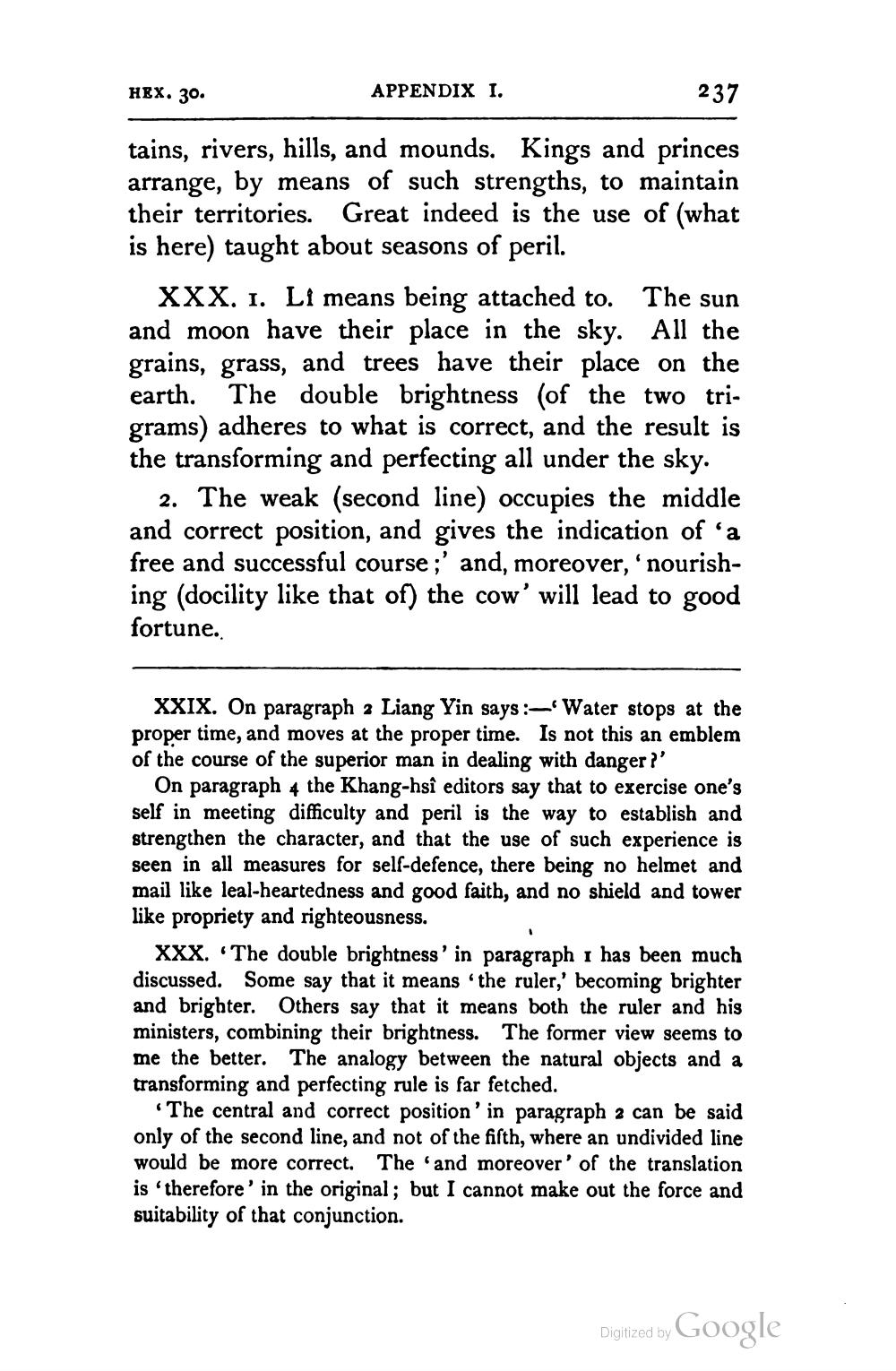________________
HEX. 30.
APPENDIX I.
237
tains, rivers, hills, and mounds. Kings and princes arrange, by means of such strengths, to maintain their territories. Great indeed is the use of (what is here) taught about seasons of peril.
XXX. 1. Li means being attached to. The sun and moon have their place in the sky. All the grains, grass, and trees have their place on the earth. The double brightness of the two trigrams) adheres to what is correct, and the result is the transforming and perfecting all under the sky.
2. The weak (second line) occupies the middle and correct position, and gives the indication of a free and successful course;' and, moreover, 'nourishing (docility like that of) the cow' will lead to good fortune.
XXIX. On paragraph 2 Liang Yin says: Water stops at the proper time, and moves at the proper time. Is not this an emblem of the course of the superior man in dealing with danger?'
On paragraph 4 the Khang-hsî editors say that to exercise one's self in meeting difficulty and peril is the way to establish and strengthen the character, and that the use of such experience is seen in all measures for self-defence, there being no helmet and mail like leal-heartedness and good faith, and no shield and tower like propriety and righteousness.
XXX. "The double brightness' in paragraph 1 has been much discussed. Some say that it means the ruler,' becoming brighter and brighter. Others say that it means both the ruler and his ministers, combining their brightness. The former view seems to me the better. The analogy between the natural objects and a transforming and perfecting rule is far fetched.
The central and correct position' in paragraph 2 can be said only of the second line, and not of the fifth, where an undivided line would be more correct. The 'and moreover' of the translation is therefore in the original; but I cannot make out the force and suitability of that conjunction.
Digitized by Google




